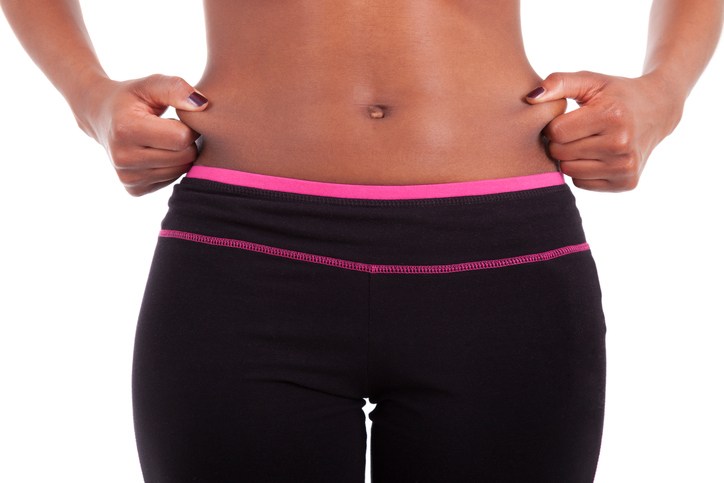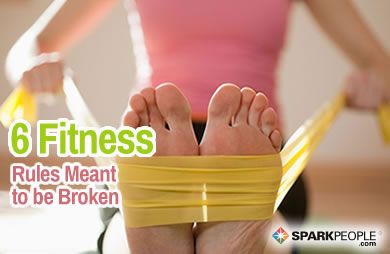13 Best (and Worst) Ways to Measure Body Fat
View as one page
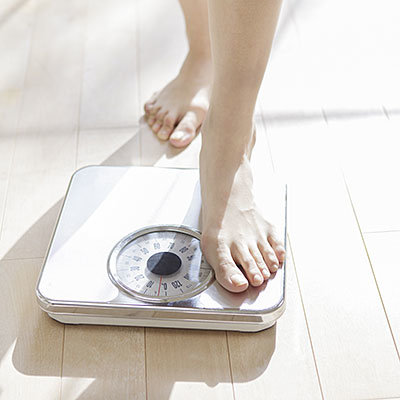
BMI
What it is: A mathematical measurement that adjusts your weight for your height. Your number will tell you if you fall in the underweight, normal, overweight, or obese categories.
Does it work? Well, sometimes. A 2012 study in the International Journal of Obesity found that 29% of people who were "normal" weight actually had a body fat percentage in the obese range. So it may miss people who look thin but actually carry a lot of body fat. Another issue: if you're especially muscular and fit (hello, Serena Williams), you'll naturally weigh more since muscle tissue is denser than fat. That can throw your numbers into the overweight category.
What to do: You can find a BMI calculator here. While the average non-athlete can trust that they won't get a false "overweight" result, given the limitations, you should still interpret your results with caution.
View as one page
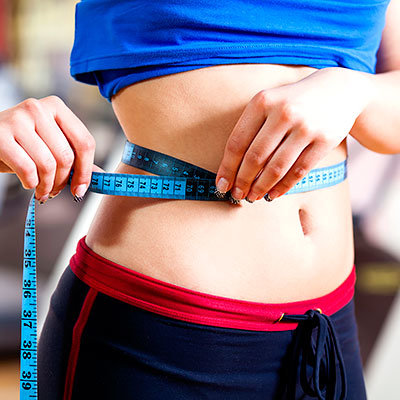
Waist circumference
What it is: For women, the ideal waist measurement is less than 35 inches; for men, less than 40.
Does it work? Yes, according to a large consensus statement released from a group of organizations like the American Diabetes Association. It's a marker of excess abdominal fat, which puts you at risk for heart disease, diabetes, and stroke. William Yancy, MD, director of the Duke University Diet and Fitness Center, uses waist circumference for patients who are overweight, but not obese.
What to do: Place the tape measure around your middle, just above your hipbones, advises the CDC. It should be snug but not too tight. Breathe out and take the measurement.
RELATED: How to Reclaim a Tiny Waist
View as one page
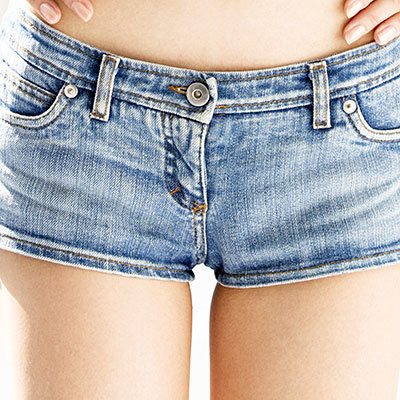
Thigh gap
What it is: Beloved by Tumblr pages and a hot trend in 2013, fans of this method claim that if you can stand with your legs together and see a gap between your thighs, you're slim.
Does it work? No. "It's all based on your bone structure and musculature, not if you're thin or not," says Charlie Seltzer, MD, a doctor specializing in weight loss in Philadelphia and a diplomat of the American Board of Obesity Medicine. He points to a very lean and healthy figure skater he's worked with who has muscular thighs and tight hips, but no thigh gap.
What to do: There's no reason to stand in the mirror and try to stand in such a way you can spot a gap, and critics point out that it can be a knock to your body-image and even trigger eating disorders.
View as one page
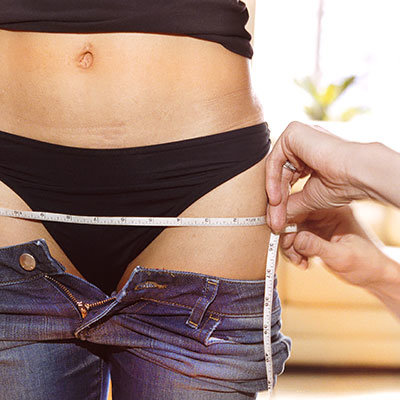
Waist-to-hip ratio
What it is: Women who have a waist-to-hip ratio of above 0.8 have a higher risk of disease.
Does it work? Yes. A study published in the European Heart Journal found that both waist-to-hip ratio and waist circumference were associated with heart disease risk, and researchers recommended that doctors incorporate these measures of obesity into cardiovascular disease assessments. But while it used to be popular, Dr. Yancy doesn't use waist-to-hip ratio much anymore. The reason: it's harder to accurately measure two places, especially when it's sufficient to worry about only one (your waist).
What to do: To calculate your own waist-to-hip ratio, wrap a tape measure around the widest parts of your waist and hips, and then log the numbers into this calculator. (http://www.healthstatus.com/calculate/waist-to-hip-ratio) to pop out your results.
RELATED: 10 Ways to Walk Off Fat Faster
View as one page
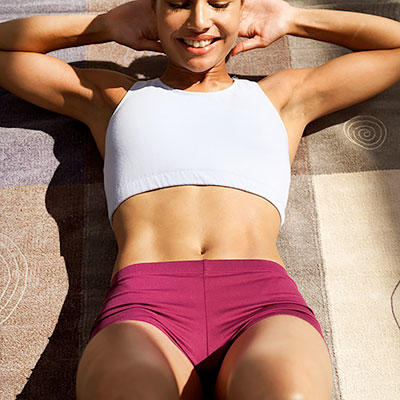
Can you see your abs?
What it is: If you have a six-pack, then you're fit.
Does it work? Sort of. "The amount of fat you're carrying under your skin is a reflection of what's going on inside your body metabolically," Dr. Seltzer says. But washboard abs require an ultra-low body fat percentage, a serious dedication to daily exercise, and a very calorie-restrictive diet.
What to do: Look at yourself in the mirror. What do you see? If you can make out some muscular definition (and this doesn't mean you need a six-pack) and you don't have a lot of fat rolling over your underwear, then that's good, says Dr. Seltzer. If not, it's not an indication you should go on a crazy fad diet or try to have a perfect body. Making some small lifestyle changes can help you shed fat in a big way. Whatever you see, the only truly accurate way to determine your health is to see your doctor and get lab work done, checking for markers like cholesterol and triglycerides.
RELATED: 10 Reasons Your Belly Fat Isn't Going Away
View as one page
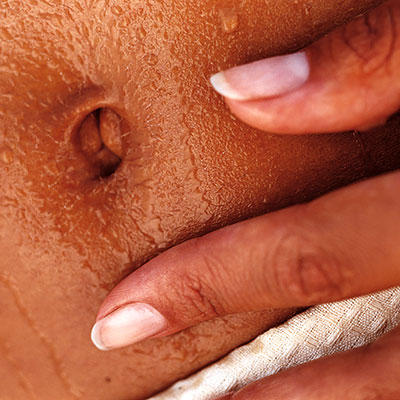
The "belly button challenge"
What it is: Wrap one arm around your back. If you can touch your belly button, you're slim.
Does it work? Not even close! Dubbed the new thigh gap, Health debunked the myth in 2015. All it teaches you is how flexible you arms are—not if you're fit or not. Oh, and not to mention, plenty of fit women can't "pass."
What to do: Take your waist measurement with an actual tape measure.
View as one page

The "collarbone challenge"
What it is: Take a roll of quarters and place them in the space in your collarbone. Do they stay put or do they fall? If you can balance them there, you're sufficiently skinny.
Does it work? Ugh, absolutely not. File this one away in the "bogus" file with the belly button challenge and thigh gap. While you're here, add to it the "bikini bridge," described as where—as one Tumblr puts it—there's a "graceful space created by a woman's hip bones suspending bikini bottoms from their abdomens."
What to do: "I worry about people tricking themselves into thinking they're healthy by using any trendy mean necessary," says Dr. Seltzer. Similarly, just like other trends, this can affect your self-image. Skip, please.
RELATED: 14 Fad Diets You Shouldn't Try
View as one page
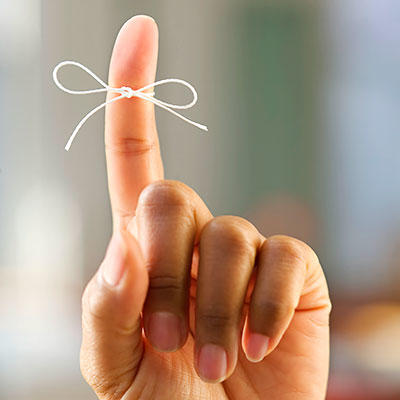
The string challenge
What it is: A fun way of measuring your waist-to-height ratio. If your waist is less than half of your height, you're healthy.
Does it work? Yes. A 2014 UK study in the journal BMC Medicine found that the waist-to-height ratio is more accurate than BMI and would account for those people who were "missed" by BMI screenings. Researchers say that it's cheap, easy, and can be used for every ethnic group.
What to do: Measure your height with a string. Fold the string in half. It should fit around your waist.
View as one page
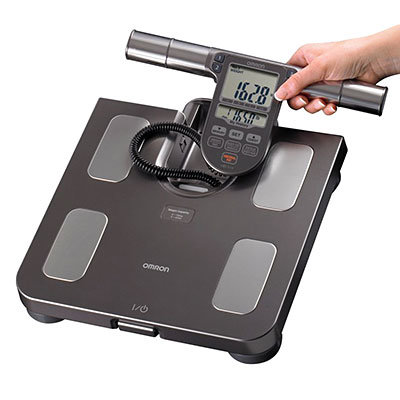
Bioelectrical Impedance Analysis
What it is: A fancy term for a machine that sends electricity through your body and back to the machine. From there, the device calculates the percent of fat versus lean tissue you have.
Does it work? Kind of. Weight loss labs use large machines that measure your body composition, and those are accurate. But this technology is also available for at-home scales and handheld devices. Problem is, those are notoriously inaccurate.
What to do: You can still use it if you have one at home. While it may not tell you accurately what body fat percentage you're starting out with, if you're losing weight you should see this percentage trend downward, says Dr. Yancy. And just like stepping on the scale, use one of these under the same circumstances every time you do it for the most accurate results, like when you wake up in the morning, after you pee, and not after exercise.
RELATED: The Top Fat-Burning Foods
View as one page
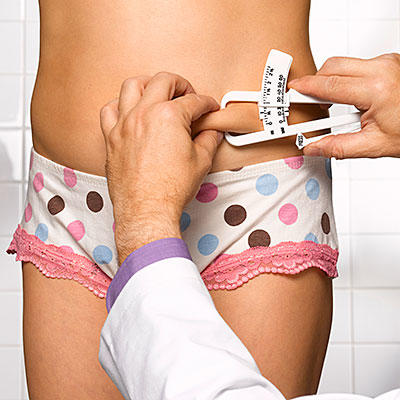
The pinch test
What it is: Many health clubs still use good old calipers, which pinch areas on your body to determine your body fat.
Does it work? It all depends on the person who's doing it—if a trainer uses one on you, let's hope they know how to use it correctly.
What to do: While one measure may not tell you the whole story, if you're trying to lose weight, the calipers should pinch less and less as you repeat the test over time. Make sure you're doing it as one measure of progress (coupled with the number on the scale, how your clothes are fitting) and not the only one.
View as one page
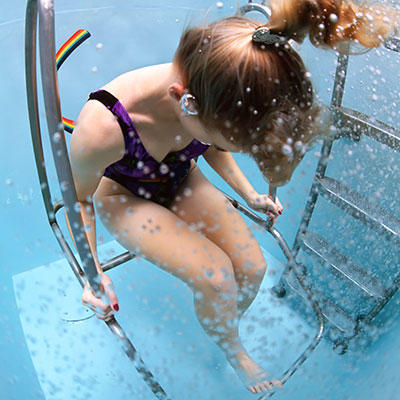
Underwater weighing
What it is: Also known as hydrostatic weighing, a tech submerges you in a water tank, and water displacement measures fat versus lean mass.
Does it work? One criticism is that it's just not convenient to use. You have to get the air out of your suit and breathe as much as you can out of your lungs, which can introduce error. It's also hard to find compared to other fat-measuring methods. According to the American Council on Exercise, it has a 2.7% margin of error compared to 3.5% for the skinfold (caliper) test.
What to do: These may be available in a research setting, but there are some mobile labs in limited areas of the country.
RELATED: 30 Fast, New Fat-Burners
View as one page
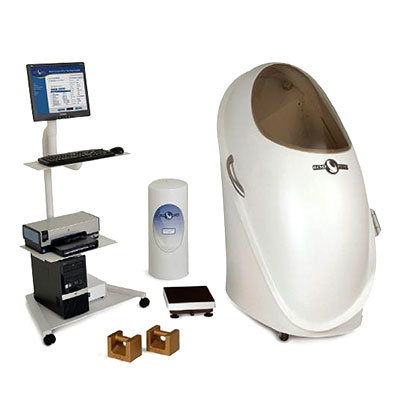
The Bod Pod
What it is: The simple explanation is that it looks like an egg that you sit in while wearing your swimsuit, explains Dr. Yancy. It's similar in concept to underwater weighing, but you stay dry. The Bod Pod taps into ADP technology (air displacement plethysmography, if you want to get fancy), which uses air displacement to measure body volume and calculates lean and fat mass.
Does it work? Yes, though some studies have found it may not be as accurate for underweight or overweight people. Other research indicates it's as good as a skin fold (caliper) test, but the downside is it's more expensive (skin fold tests are likely free at your gym).
What to do: You're not going to buy a Bod Pod for your house, but you can find one at sports and fitness locations near you.
View as one page
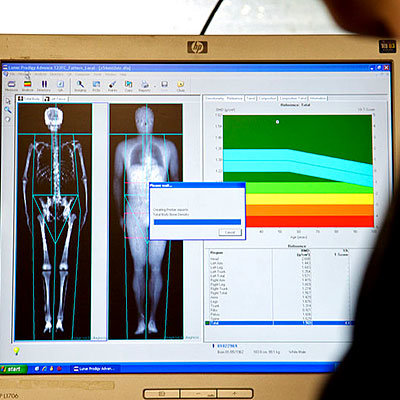
DEXA scan
What it is: Dual-energy X-ray absorptiometry (DEXA) is traditionally used to determine bone density and assess osteoporosis risk, but it can also be used to look at body composition, says Dr. Yancy.
Does it work? It's convenient and quick and DEXA can determine the amount of muscle, fat, and bone—and break it up by body area. The results can also determine how much visceral fat you have, the dangerous fat around your waist that's linked to diabetes and heart disease. Research notes that it's accurate with a small margin of error, while a 2015 study found DEXA was better than the Bod Pod, especially for thinner and underweight people.
What to do: If you're interested, you can see if there's a DexaFit near your city. Prices are around $150 for a 30-minute session.
-
Diet Chart For Weight Loss And Healthy Snack Recipes
In 1992 the USDA developed the food guide pyramid to support these die
-
10 Reasons To Eat Way More Nuts & Seeds
-
How To Set Weight Loss Goal To Achieve An Ideal Weight
Setting weight loss goal is very necessary for successful weight loss
-
Cant Lose Weight? The 5 Internal Factors That Rule Your Metabolism
It’s time to get a little more specific about what’s really going on w
-
Weight Loss and Raw Foods
Raw food is often associated with its benefits, and weight loss is
-
Spare Your Child From Unhealthy Weight Gain
Kids are more and more preoccupied with playing computer games, sur
- DON'T MISS
- Why I Tell My Patients To Eat Breakfast If They Want To Lose Weight
- Can You Don a Bikini and Hit the Beach Using the South Beach Diet?
- Lose Weight By Using Affirmations And Visualizations
- The Truth About Calories
- Got Food Serving Smarts
- 5 Motivational Tips To Help You Lose Weight
- Free Weights and Stair Climbing: The Ultimate Upper and Lower Body Workout
- What Diet Supplements Are Right For You?
- The Truth Behind Walking vs. Running for Weight Loss
- Weight Loss And Disease Its Not The Food Thats Killing Us
